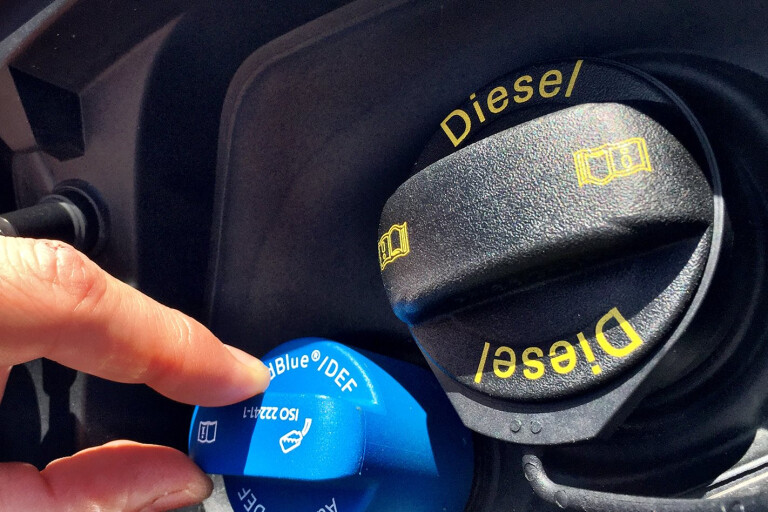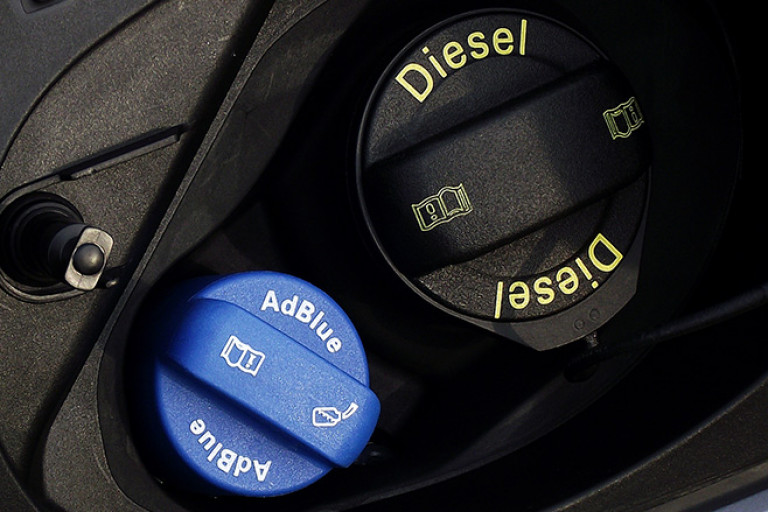
AdBlue was all over the news for a while there, but just what is it?
AdBlue is the marketing term for a fluid used in the catalytic convertor fitted to the exhaust systems of some diesel cars. It is injected into the exhaust gases and burnt at very high temperatures to break down harmful nitrogen oxides.
Some diesel engines need AdBlue to help them meet tough Euro 6 emissions standards that regulate what level of harmful emissions can come out of a car’s exhaust.
Which cars use AdBlue?
AdBlue is common in trucks and is now used in a number of late-model diesel cars and SUVs produced by a growing number of manufacturers including Renault, Citroen, BMW, Audi, Volkswagen, Ford, Mazda, and Toyota. Mercedes-Benz calls its AdBlue systems “BlueTec” – You've probably seen that badge around.
What is AdBlue made from?
AdBlue is composed of deionised water and urea.
Oh... What's Urea?
Urea is a chemical compound that is widely used in a variety of applications, including fertilizers, animal feed, and the production of plastics and other industrial products.
Urea is in Urine, can you use that instead?
We’d (sorta kinda) love to say yes, but no, you can’t.
Your pee is only about 3.0 percent urea (the rest is mostly water), which is well short of the 32.5 percent needed for AdBlue to do its thing.

How does AdBlue work?
Firstly, AdBlue isn’t mixed with the diesel fuel. So don't do that.
Instead, it works with the exhaust gasses after they come out of the engine. It is stored in a separate storage tank with its own inlet, and is sprayed into the exhaust stream in measured doses. It then reacts with the nitrogen oxide in the exhaust gasses and, via the catalytic converter, is transformed into nitrogen and water.
So, let's say somebody added AdBlue to the fuel tank... what then? Asking for a friend.
If you your friend accidentally poured AdBlue into the fuel tank, don’t start the car.
The fuel tank will need to be drained, as it could damage the engine and corrode fuel lines.
Despite the harm caused by pouring AdBlue in the fuel tank, most cars have the two inlets next to each other – though you can clearly tell them apart as the AdBlue cap is generally blue and the pipe is too small for a fuel filler.
Do I need AdBlue for the car to run?
Mechnically, AdBlue isn’t required for the engine to work. However, because it keeps emissions within legal requirements, the car’s engine is programmed to stop working if there is insufficient AdBlue, or another liquid in the tank. You should get sufficient warning via your car’s multi-function display before this occurs.
How much AdBlue does a car use?
The average car uses about 5 percent of AdBlue as it does diesel fuel, which is about a litre for every 1000km travelled.
The storage tank is designed to be big enough so the AdBlue lasts within scheduled service intervals. If you run low before your next service, you can top it up yourself.
Is it easy to top it up?
Topping up is as simple as refilling your window washer reservoir. However, while AdBlue is considered a non-hazardous liquid, it is corrosive – so be sure to wash any part of your body and the car paintwork affected by a spill. And don’t forget the above warning about getting it in your fuel tank.
How much does AdBlue cost?
It’s relatively inexpensive when compared with something like motor oil. That said, the price can fluctuate based on the cost of urea production, which requires plenty of energy, mostly in the form of natural gas.
Prices can vary, but for a ballpark figure, a 2.0-litre bottle costs up to $30 from a car dealership, but for just $2.50 more you can get a 10-litre bottle.
It's also available at auto-accessories stories from a range of brands, some which you'll recognise from their engine oils. Be sure to check if they're suitable for your vehicle. If in doubt buy it from your car manufacturer.
AdBlue has a shelf life of at least 12 months so you could get a couple of top ups out of it.
COMMENTS